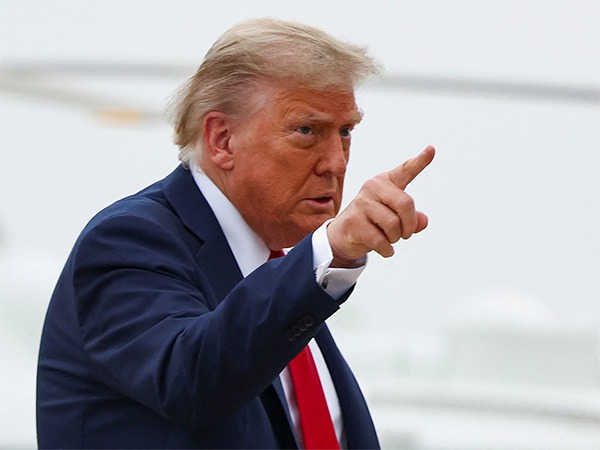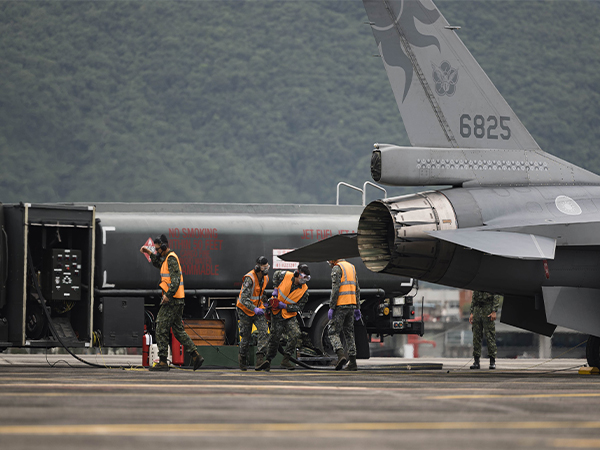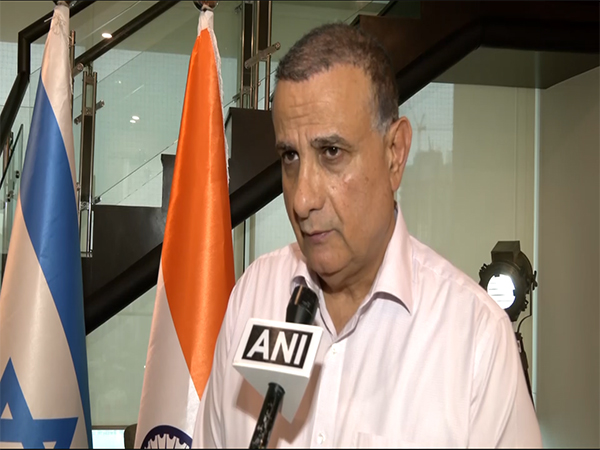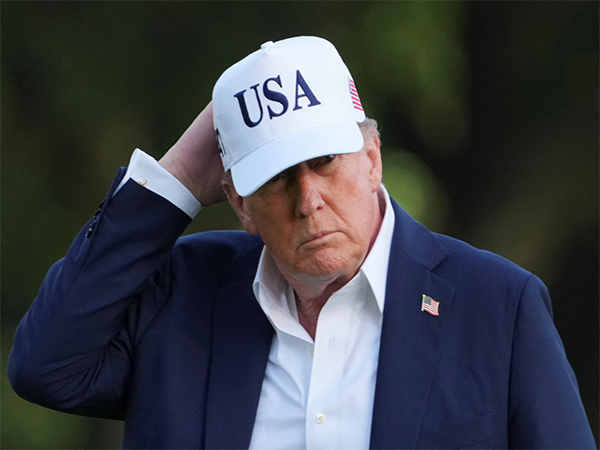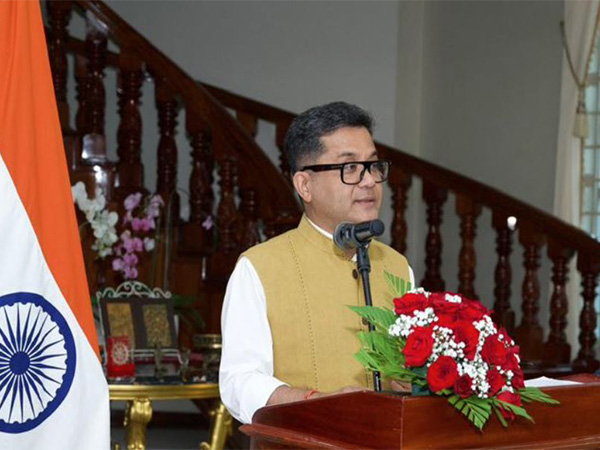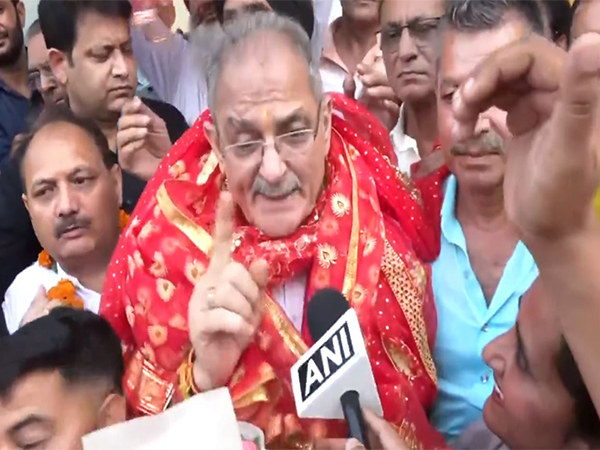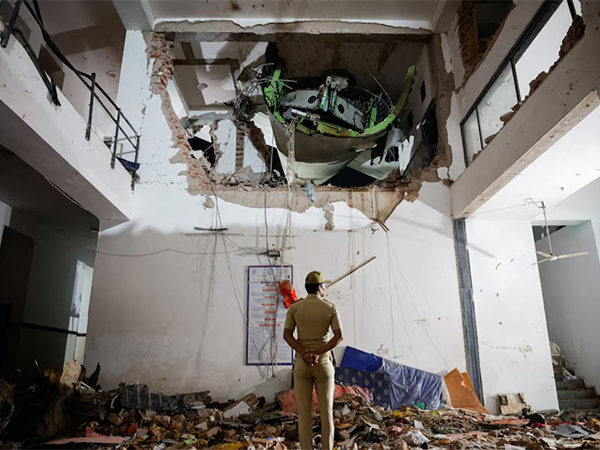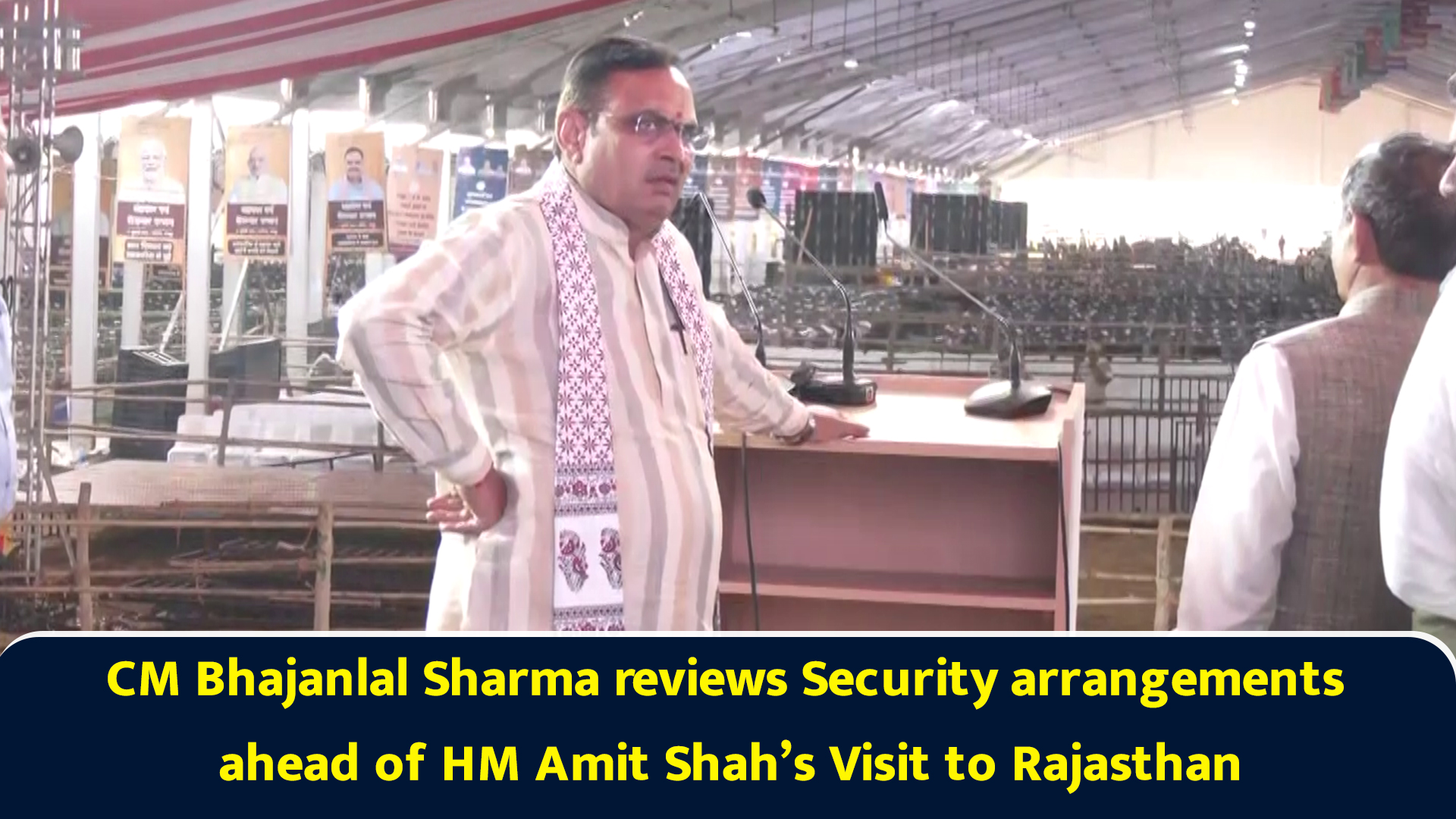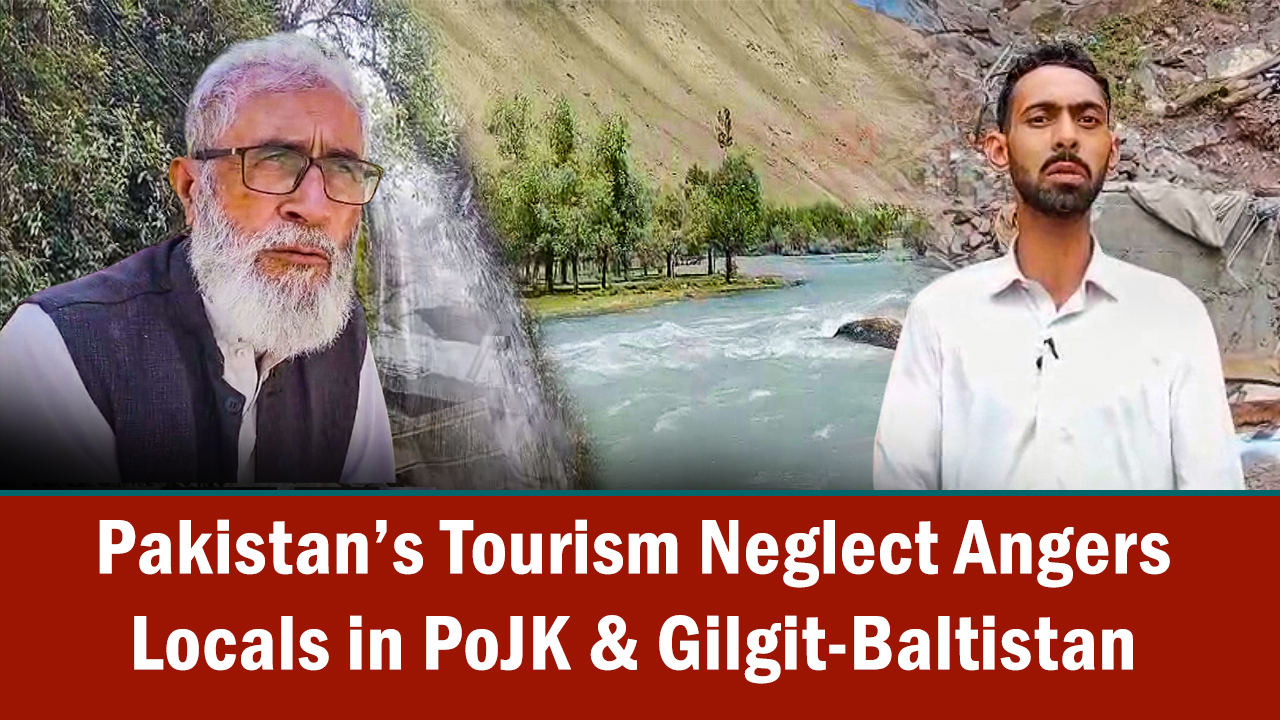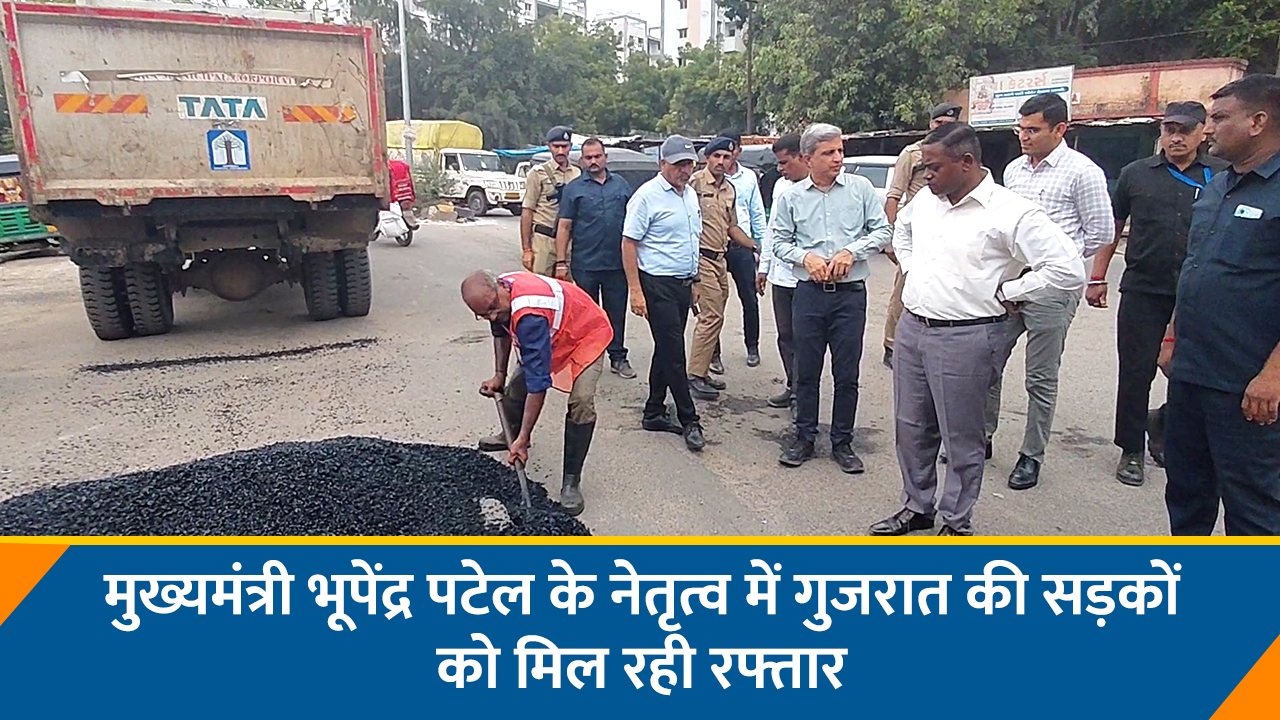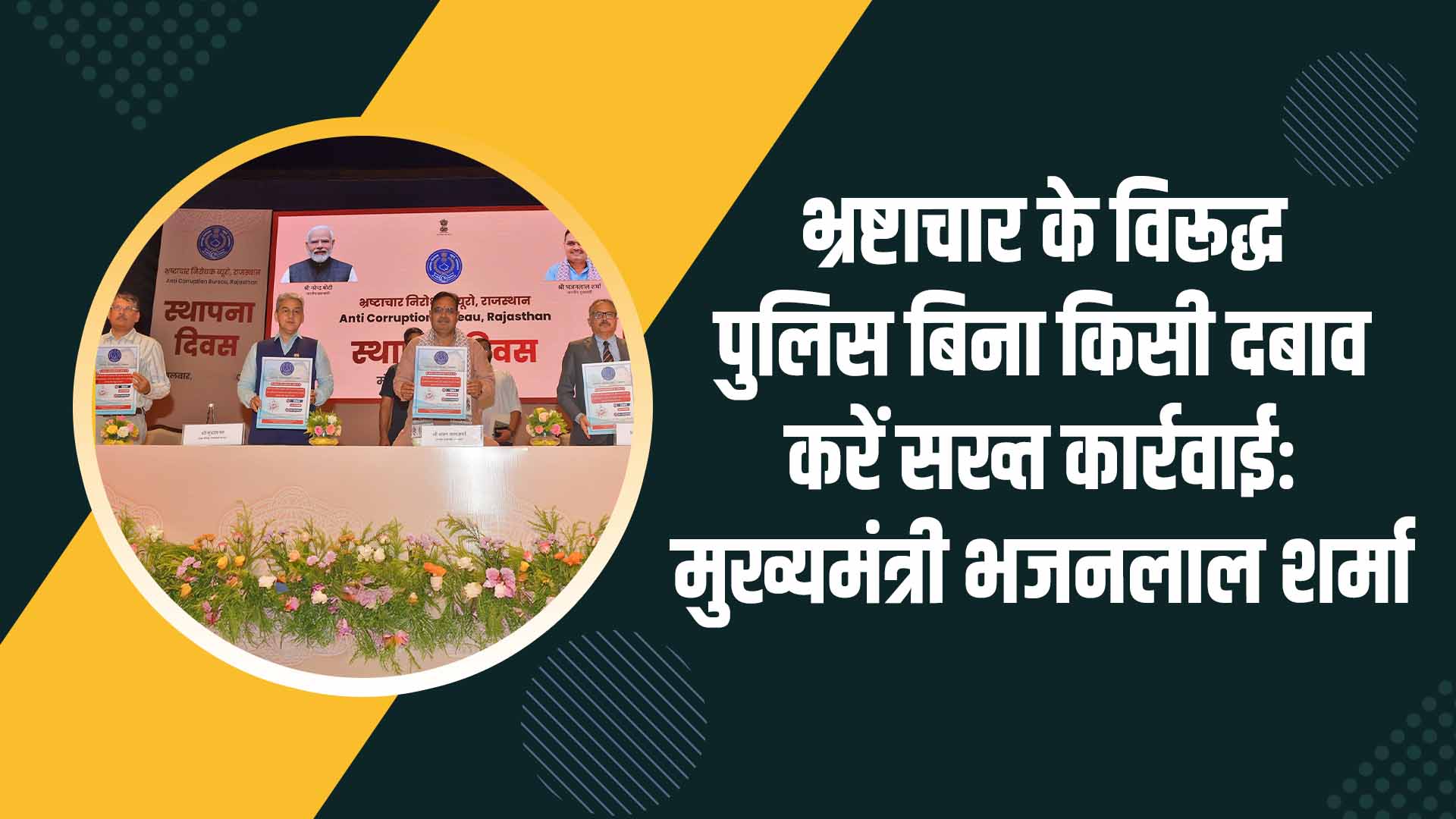COP28 President urges governments to 'think bigger, act bolder' on national climate plans
Apr 26, 2024

Berlin [Germany], April 26 (ANI/WAM): Speaking in the High-Level Segment of the annual Petersberg Climate Dialogue, attended by Chancellor Olaf Scholz, President Ilham Aliyev of Azerbaijan and a number of Climate and Foreign Affairs Minister Ministers, Sultan Ahmed Al Jaber, Minister of Industry and Advanced Technology and COP28 President, urged governments to "think bigger, act bolder" on national climate plans.
The COP28 President highlighted how the UAE Consensus has emerged as the defining point of reference for global climate ambition and sustainable development since its inception in Dubai last year.
"The UAE Consensus represents a historic milestone in climate diplomacy precisely because it achieved cross-sectoral breakthroughs across the entire climate agenda," Al Jaber declared. "Together, we set a clear pathway for the energy transition, backed by the science, and focused on the north star of 1.5."
Al Jaber continued, "We locked in the first-ever global renewable energy targets. We achieved firsts for nature, setting a 2030 deadline to end deforestation. We made breakthroughs in finance, ending a 30-year deadlock on loss and damage, and beginning to fill a fund that is critical for climate justice. We also included under-recognised sectors like food and health in the COP agenda for the first time. And we did all this against a backdrop of geopolitical tensions, proving that multilateralism still works and that unity can overcome polarisation. In short, we sent a message of hope, optimism and inclusivity that could not be more important today."
The COP Presidencies Troika - the groundbreaking initiative aims to enhance continuity between COP 28, COP29 and COP30 and drive implementation of the UAE Consensus - is pushing governments to be "more ambitious" in their next round of Nationally Determined Contributions (NDCs), Dr. Al Jaber said.
He said that governments should set out economy-wide emission reduction plans and produce "well-funded" national adaption plans to protect nature and transform food systems.
"My message to governments is simple think bigger, act bolder," Dr. Al Jaber told delegates. "Send a clear message early with your next NDC that puts green infrastructure at the centre of your development plans."
The COP28 President also advocated for "smart policies that push industries to step up and incentivise the private sector to invest," adding "we are talking about a system-wide transformation that represents the biggest opportunity for socio-economic development since the first industrial revolution. Simply put, the world will be a better place after this transformation. But it will not happen without significant investment and a level up in climate finance."
Al Jaber highlighted four key investment priorities: infrastructure, technology, people, and the Global South. On infrastructure, the world needs to invest at least USD 6 trillion to meet the 2030 target of 11 terawatts of renewable energy capacity, Al Jaber stated, with a "similar level of investment" in outdated or nonexistent energy grids, especially in developing countries.
Artificial intelligence "can be a game-changer" by multiplying efficiencies and helping to solve the intermittency challenges posed by renewables, the President said, adding that it could also minimise water usage. "The faster we apply AI across energy and water-intensive sectors, the faster its benefits can be scaled," he declared.
All countries should also invest in their people, developing new skills for the new green economy, while Dr. Al Jaber reiterated the need to increase investment in the Global South. "Right now, over 120 developing countries attract less than 15 per cent of global clean tech investment," he said. "Multilateral Development Banks must make finance more available, accessible and affordable."
Al Jaber said the energy transition would take time and "will happen at different paces in different places, and we cannot unplug the current energy system until the new one is built." It must also be just, equitable and responsible, in line with the targets set out in the UAE Consensus.
During the Climate Dialogue, the COP Presidencies Troika also hosted a Majlis, a form of meeting rooted in longstanding Emirati traditions, to discuss the energy transition. Representing the first session of the Troika Ambition Series, in the event titled 'Majlis: Roadmap Mission to 1.5C - Enabling Energy Transition Outcomes from the UAE Consensus' Al Jaber spoke alongside Mukhtar Babyev, COP29 President-Designate and Marina Silva, Environment Minister for Brazil, host of COP30. Together, the Troika are working across the UN system to push for more ambitious, early and UAE Consensus-aligned NDCs.
The format and spirit of the Majlis, bringing people together on an equal footing, had "helped break the deadlock" at COP28, Al Jaber said, adding that "we want to use the same format and the same spirit of the Majlis to have an honest, transparent and practical dialogue around the energy transition."
Al Jaber asked participants to have a frank conversation about how to address the urgency of the climate situation, while "maintaining energy security and economic prosperity."
He also said it was important the energy transition "leads to opportunity for all and holds back emissions, not progress." Alongside these engagements, the COP28 President met directly with Azerbaijan's President Aliyev, Germany's Foreign Minister Annalena Baerbock and France's Minister for Foreign Affairs and Europe, Stephane Sejourne. (ANI/WAM)
